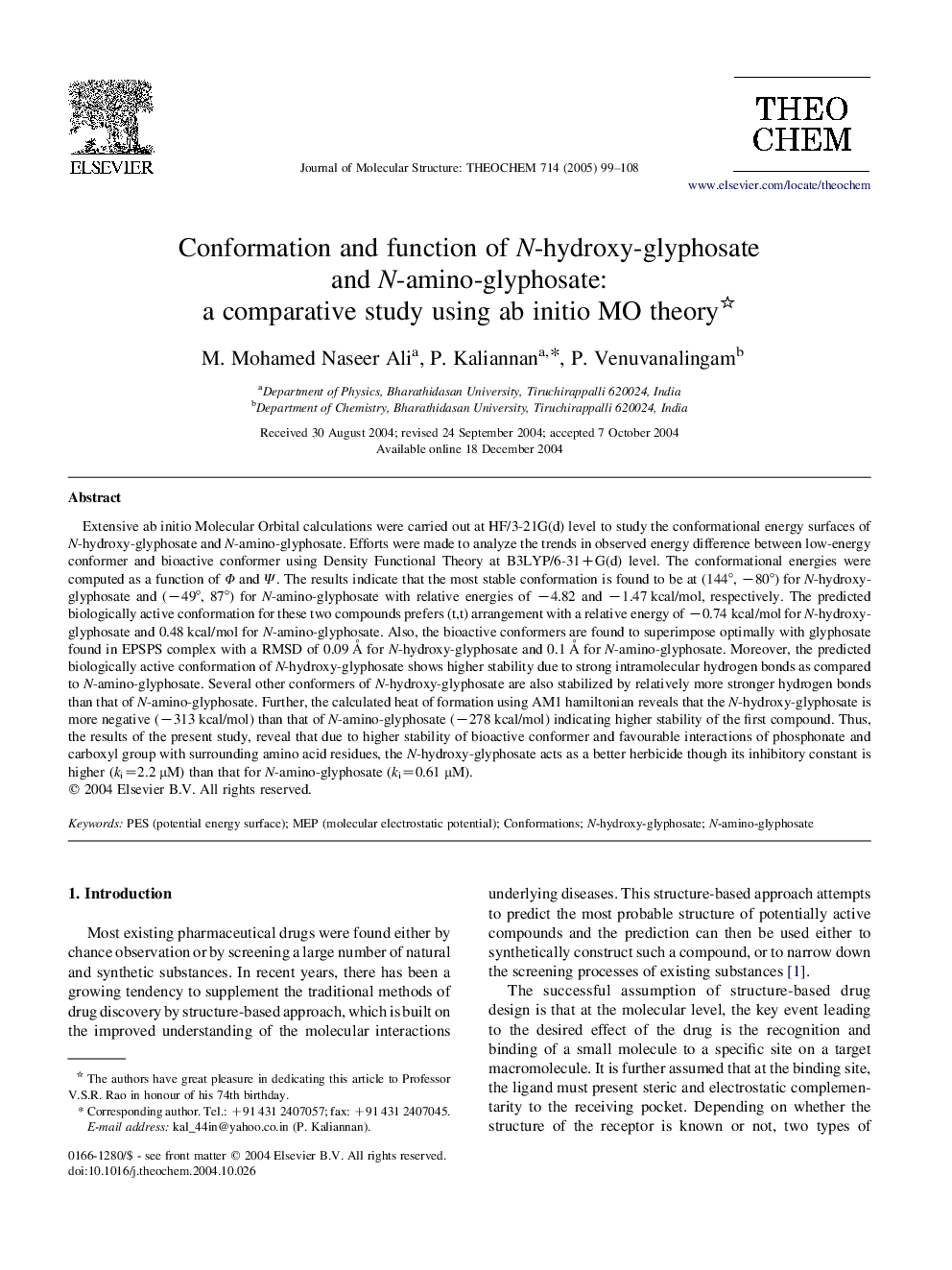| Article ID | Journal | Published Year | Pages | File Type |
|---|---|---|---|---|
| 9590717 | Journal of Molecular Structure: THEOCHEM | 2005 | 10 Pages |
Abstract
Extensive ab initio Molecular Orbital calculations were carried out at HF/3-21G(d) level to study the conformational energy surfaces of N-hydroxy-glyphosate and N-amino-glyphosate. Efforts were made to analyze the trends in observed energy difference between low-energy conformer and bioactive conformer using Density Functional Theory at B3LYP/6-31+G(d) level. The conformational energies were computed as a function of Φ and Ψ. The results indicate that the most stable conformation is found to be at (144°, â80°) for N-hydroxy-glyphosate and (â49°, 87°) for N-amino-glyphosate with relative energies of â4.82 and â1.47 kcal/mol, respectively. The predicted biologically active conformation for these two compounds prefers (t,t) arrangement with a relative energy of â0.74 kcal/mol for N-hydroxy-glyphosate and 0.48 kcal/mol for N-amino-glyphosate. Also, the bioactive conformers are found to superimpose optimally with glyphosate found in EPSPS complex with a RMSD of 0.09 Ã
for N-hydroxy-glyphosate and 0.1Â Ã
for N-amino-glyphosate. Moreover, the predicted biologically active conformation of N-hydroxy-glyphosate shows higher stability due to strong intramolecular hydrogen bonds as compared to N-amino-glyphosate. Several other conformers of N-hydroxy-glyphosate are also stabilized by relatively more stronger hydrogen bonds than that of N-amino-glyphosate. Further, the calculated heat of formation using AM1 hamiltonian reveals that the N-hydroxy-glyphosate is more negative (â313 kcal/mol) than that of N-amino-glyphosate (â278 kcal/mol) indicating higher stability of the first compound. Thus, the results of the present study, reveal that due to higher stability of bioactive conformer and favourable interactions of phosphonate and carboxyl group with surrounding amino acid residues, the N-hydroxy-glyphosate acts as a better herbicide though its inhibitory constant is higher (ki=2.2 μM) than that for N-amino-glyphosate (ki=0.61 μM).
Keywords
Related Topics
Physical Sciences and Engineering
Chemistry
Physical and Theoretical Chemistry
Authors
M. Mohamed Naseer Ali, P. Kaliannan, P. Venuvanalingam,
